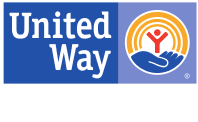While February is Jewish Disability, Awareness and Inclusion Month (JDAIM), a North American initiative to raise awareness and support efforts to foster inclusion in Jewish communities worldwide, at the JCC of Greater Pittsburgh, awareness and inclusion of those with physical or developmental differences is a year-round commitment – fully integrated into our programming and baked into the way we do things as part of our mission to nurture people and connect communities.
- The JCC’s James & Rachel Levinson Day Camp, with funding from the Edith L. Trees Charitable Trust, has for many years provided inclusive opportunities so that children with special needs develop the life skills necessary to become independent and resilient as well as to interact freely and joyfully alongside with neurotypical youth.
- Led by longtime staff member Lynne Carvell, the Teen and Young Adult Center provides participants who face physical, intellectual or mild emotional and behavioral challenges with the opportunity each day to engage in the JCC’s broad suite of programming – from swimming to art to dance to sports – often side-by-side with other JCC members.*
- Gesher is a two-week, inclusive program at the JCC’s Emma Kaufmann Camp for teens and young adults with special needs. Participants engage in their favorite camp activities, such as ropes, water-tubing and horseback riding while also learning teamwork, independence and Jewish values and culture. Interaction with other campers and integration into activities with groups of all ages and abilities has always been a focal point of the program.
- For more than a decade, a licensed professional counselor has visited the JCC’s Early Childhood Development Center weekly to observe children and classroom dynamics and offers guidance and resources to educators. When concerns arise for an educator or for a parent related to a specific child, the counselor helps to determine the best course of action, all the way up to and including early intervention evaluations.
“If the JCC is really for everybody then being aware and being prepared to serve those within our community with different types and different levels of disabilities must be foundational to what we’re all about,” says Jason Kunzman, JCC Chief Program Officer. “I think what we have learned is the level of intentionality that is required for the JCC to be able to truly meet the needs of a diverse community,” Kunzman says, in describing the JCC’s approach. “It can’t be about just making a space available, but instead, it requires intense planning and in many cases partnership with experts in the field to carefully design meaningful experiences.”
A significant grant from The Staunton Farm Foundation, Beyond an Inclusion Policy: Ensuring Children and Adolescents Reach Their Developmental Potential, has propelled the JCC’s inclusion practices forward and has played a big role in fostering community awareness and developing what Kunzman terms as “organizational discipline.”
With the grant, not only did the JCC facilitate a community discussion with Jean Twenge, one of the nation’s leading experts on the mental health effects on teens being addicted to their smart phones and social media, but the JCC also built sensory spaces in both the camp and after school* settings, provided specific staff training around inclusion and invisible disabilities (such as Youth Mental Health First Aid), and enabled the hiring of additional staff called “inclusion coordinators” for JCC camps. Many of the inclusion-related practices have been incorporated into the JCC’s All Day at the J program, which has not only supported the virtual learning needs of K-6th grade students and their families but has also helped combat the effects of social isolation among our youngest community members during the pandemic’s mandated school closures.
Initially funded by The Staunton Farm Foundation in 2019, the Summer 2021 B’Yachad program at Emma Kaufmann Camp is being sponsored by The Karp Family Foundation through the Jewish Federation of Greater Pittsburgh’s COVID Relief Fund. Specifically designed for campers with mild to moderate learning, social or emotional challenges, B’Yachad fosters inclusion and cooperation, personal achievement and social relationships. Participants live in bunks with typical campers and are integrated into all activities, guided by dedicated, trained staff.
“The pandemic has considerably upped the ante. We need to be more aware than ever of the mental, emotional and social health challenges that many of our participants face on a daily basis,” Kunzman says. “We have a responsibility not only to equip our staff with the appropriate tools but to also build the community’s awareness on the topic.”
*Some programs have been suspended during the COVID-19 pandemic but will resume when conditions allow.



